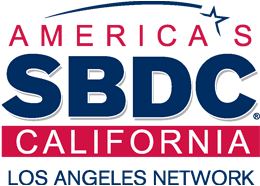One of the great debates a small business owner is if, when and how the owner should pay themselves. In my opinion, there isn’t a perfect answer. A lot will depend on the industry and the company’s margin of profit. Deciding on what wage an owner will take and overall salary for the company is a very important topic to be decided. There is a lot of good information to research and many tax professionals can provide valuable feedback. The reason this subject is so crucial for a business is because the effects it can have in the long term. Here are some considerations regarding salary.
Salary for your company and you
One of the most important aspects of a job for an employee is the money they make. It obviously can’t be something that changes monthly unless you have commission based employees. Salary is an expense of operating a business and must be in line as a percentage of the total operating expense. The percentage you decide will be based on your profit margin and the industry you’re in. The company must have a strategy for how salary is determined to ensure it doesn’t exceed a certain threshold. A lot of expenses in business can be reduced fairly easily but salary is not one of them – people’s livelihood is at stake.
What you put in determines what you get out
As a business owner it would be great to have a base hourly wage that can always be counted on. Unfortunately that rarely happens, most businesses require more hours that are just to preserve the bottom line not necessarily add to it. Yet as a business owner if this is a full time job you should be paying yourself a full time salary. This could be less than a normal salaried employee with the idea that if the business does well you get a distribution or bonus at the end of the year. If the owner puts less hours in than a normal employee they should draw less and enjoy the profits at the end of the year.
Don’t bleed the company dry
Whatever you decide to pay yourself or take as a distribution it should not push the company negative. It’s understandable that a company may have a down year and could have negative net income. A business owner’s salary should not be the reason for that. Remember, a business is a living entity that must continue into the future. Even though distributions don’t reflect the income statement it is best not to have when a company loses money. The distributions in year where net income is negative actually will come from Retained Earnings which in the end reduces what a company is worth.
The future impact of a salary
Though it doesn’t always turn out this way,the salary an owner takes today can decide where the business is tomorrow. The problem with salary is that it’s easy to become dependent on it, which in most cases is not bad. But if the economy were to change or a company lost a big customer an owner needs to be prepared for what needs to happen next. If an owner’s salary is non-negotiable it may be difficult to navigate through a downturn in the business. Essential expenses might be cut further deteriorating the business’ operations or worse an employee may need to be laid off. The expense of a salary can have a negative effect on borrowing. If a lender sees a lot of cash being taken out of the business they may be less inclined to lend.
A salary is always at the owner’s discretion but it is important to keep these considerations in mind when deciding what your salary strategy is. Most importantly be flexible and prepared to reduce your salary in case things in the marketplace take an unexpected turn. There are always distributions to be had at the end of the year if the company turns a profit.



